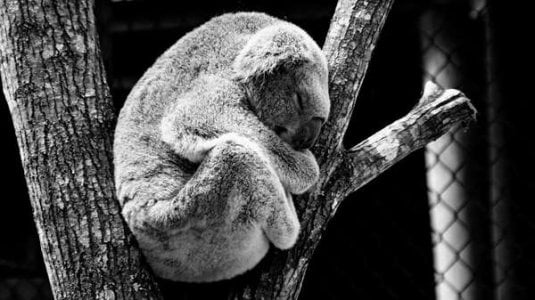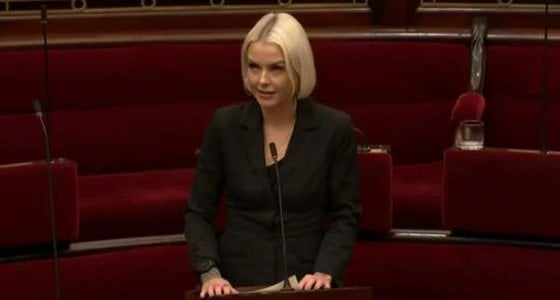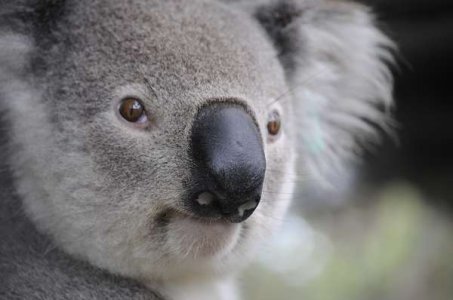New findings behind 152 koalas tragically killed on private property
Here at the Seniors Discount Club, we have a deep affection for Australia’s native wildlife, especially koalas. When we received the distressing news that over 150 koalas had tragically lost their lives on private property, our hearts sank, and we know many of you share our concern.
The Victorian government's handling of this crisis has been widely criticised as 'embarrassing' and 'unacceptable' after a population of koalas were discovered to be living in a contaminated plantation, despite their already fragile health conditions.
But how did this mismanagement come about? Let's look more into the story and find out.

The issue was initially brought to light in parliament by Georgie Purcell, a passionate member of the Animal Justice Party. She voiced her deep concerns about the government's decisions concerning the welfare of these beloved creatures.
Since then, Purcell and her team have been inundated with questions from concerned Australians and wildlife enthusiasts from around the world.
'The Victorian public simply won't accept it,' Ms Purcell told Yahoo News Australia.
'That is why they are so desperate to cover up what is going on... and why it has been so difficult to get any answers or outcomes about the koalas.'
In a tragic turn of events, distressing new information cameto light in May regarding the fate of the koalas.
Alcoa, an American industrial giant, confirmed that out of 348 koalas who underwent health checks between 2019 and 2023, a staggering 152 had to be euthanised due to various health issues. If you want to learn more about this heart-wrenching story, you can read about it here.
These koalas resided in eucalyptus trees near Alcoa's aluminium smelter, enduring the hardships of a debilitating bone disease known as fluorosis. This condition not only causes bone deformities but also leads to malnutrition.
Scientists have found a connection between fluoride emissions during aluminium production and the development of fluorosis in these precious creatures.
Now, we're no strangers to the ongoing fluoride debate in Australia. We've seen the environmental consequences of industry actions unfold before our eyes.
Let's cast our minds back to 2010 when the Environment Protection Authority (EPA) reported the same disease affecting kangaroos near the smelter. Tragically, this resulted in the culling of 49 kangaroos.

To add to the shocking revelation, Alcoa has decided to keep the details of the koalas’ health checks conducted in Portland during June 2022 and March 2023 under wraps. It's disheartening to see a lack of transparency from such a significant player in this matter.
In an unsettling statement, they said, 'We do not see value in releasing detailed figures or results from individual health assessments.'
Despite Alcoa complying with state regulatory requirements and euthanising the sick koalas under the guidance of independent experts, the million-dollar question remains: Why didn't the government opt to relocate the ailing koala population from the contaminated site?
Ms Purcell has accused the government of shirking their responsibility to safeguard Victoria's precious wildlife.
'Not only do we have a minister in Victoria that is directly responsible for the welfare of our native animals, but we also have an entire government department, and they are outsourcing (koala management) to an American company,'
And if you thought things couldn't get any worse, koalas in New South Wales, Queensland, and the ACT enjoy federal protection as an 'endangered' species, while their counterparts in Victoria tragically lack the same status.


Since the story became public, Alcoa announced its plans to gradually remove the contaminated 17-hectare plantation housing the surviving koalas and relocate them to a 77-hectare habitat.
They've planted 16,000 eucalyptus trees across 14 hectares to facilitate the process. 'Our priority is to gradually remove the plantation closest to the smelter to reduce exposure to fluoride emissions while also giving koalas the opportunity to relocate,' Alcoa said in May.
The occurrence of these devastating events should serve as a resounding wake-up call, reminding us all that more concerted efforts are necessary to protect and preserve Australia's beloved native animals. It is not only for our sake but also for the benefit of future generations.
At the Seniors Discount Club, we understand the importance of progress and industry. However, we firmly acknowledge the significance of safeguarding our vulnerable wildlife.
In light of these developments, we pose a question: What steps do you believe should be taken to ensure the long-term protection and preservation of Australia's iconic native animals? We eagerly await your insights and suggestions, as every voice counts in shaping a better future for our wildlife.
The Victorian government's handling of this crisis has been widely criticised as 'embarrassing' and 'unacceptable' after a population of koalas were discovered to be living in a contaminated plantation, despite their already fragile health conditions.
But how did this mismanagement come about? Let's look more into the story and find out.

A total of 152 koalas had to be euthanised due to their deteriorating health in the land adjacent to Alcoa's Portland aluminium smelter. Photo by Pixabay
The issue was initially brought to light in parliament by Georgie Purcell, a passionate member of the Animal Justice Party. She voiced her deep concerns about the government's decisions concerning the welfare of these beloved creatures.
Since then, Purcell and her team have been inundated with questions from concerned Australians and wildlife enthusiasts from around the world.
'The Victorian public simply won't accept it,' Ms Purcell told Yahoo News Australia.
'That is why they are so desperate to cover up what is going on... and why it has been so difficult to get any answers or outcomes about the koalas.'
In a tragic turn of events, distressing new information cameto light in May regarding the fate of the koalas.
Alcoa, an American industrial giant, confirmed that out of 348 koalas who underwent health checks between 2019 and 2023, a staggering 152 had to be euthanised due to various health issues. If you want to learn more about this heart-wrenching story, you can read about it here.
These koalas resided in eucalyptus trees near Alcoa's aluminium smelter, enduring the hardships of a debilitating bone disease known as fluorosis. This condition not only causes bone deformities but also leads to malnutrition.
Scientists have found a connection between fluoride emissions during aluminium production and the development of fluorosis in these precious creatures.
Now, we're no strangers to the ongoing fluoride debate in Australia. We've seen the environmental consequences of industry actions unfold before our eyes.
Let's cast our minds back to 2010 when the Environment Protection Authority (EPA) reported the same disease affecting kangaroos near the smelter. Tragically, this resulted in the culling of 49 kangaroos.

Georgie Purcell, a passionate advocate for wildlife conservation, brought the heart-wrenching issue of koala euthanasia to the forefront during a session in the state parliament. Source: Parliament of Victoria
To add to the shocking revelation, Alcoa has decided to keep the details of the koalas’ health checks conducted in Portland during June 2022 and March 2023 under wraps. It's disheartening to see a lack of transparency from such a significant player in this matter.
In an unsettling statement, they said, 'We do not see value in releasing detailed figures or results from individual health assessments.'
Despite Alcoa complying with state regulatory requirements and euthanising the sick koalas under the guidance of independent experts, the million-dollar question remains: Why didn't the government opt to relocate the ailing koala population from the contaminated site?
Ms Purcell has accused the government of shirking their responsibility to safeguard Victoria's precious wildlife.
'Not only do we have a minister in Victoria that is directly responsible for the welfare of our native animals, but we also have an entire government department, and they are outsourcing (koala management) to an American company,'
And if you thought things couldn't get any worse, koalas in New South Wales, Queensland, and the ACT enjoy federal protection as an 'endangered' species, while their counterparts in Victoria tragically lack the same status.
Key Takeaways
- 152 koalas were euthanised due to poor health at a contaminated plantation in Portland, Victoria.
- The koalas suffered from a bone disease called fluorosis, which is linked to fluoride emissions produced during aluminium production.
- The Victorian government has been criticised for allowing the increasingly unwell koala population to remain at the contaminated site.
- Alcoa, the company operating the aluminium smelter, has planted additional eucalyptus trees in an attempt to relocate the surviving koalas to a safer habitat.

During the process of conducting health assessments on the koalas, Alcoa took measures to ensure the privacy and well-being of the animals. As part of their responsible management, the private property under their care was temporarily closed to the public. Image by Angelo_Giordano from pixabay
Since the story became public, Alcoa announced its plans to gradually remove the contaminated 17-hectare plantation housing the surviving koalas and relocate them to a 77-hectare habitat.
They've planted 16,000 eucalyptus trees across 14 hectares to facilitate the process. 'Our priority is to gradually remove the plantation closest to the smelter to reduce exposure to fluoride emissions while also giving koalas the opportunity to relocate,' Alcoa said in May.
The occurrence of these devastating events should serve as a resounding wake-up call, reminding us all that more concerted efforts are necessary to protect and preserve Australia's beloved native animals. It is not only for our sake but also for the benefit of future generations.
At the Seniors Discount Club, we understand the importance of progress and industry. However, we firmly acknowledge the significance of safeguarding our vulnerable wildlife.
In light of these developments, we pose a question: What steps do you believe should be taken to ensure the long-term protection and preservation of Australia's iconic native animals? We eagerly await your insights and suggestions, as every voice counts in shaping a better future for our wildlife.







